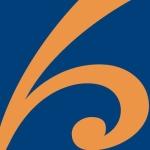Influenza A (H1N1) Swine Flu - Update Eighty-four
Whilst there are still many unknowns about Influenza A (H1N1) swine flu, health officials do know that the three most important things New Zealanders can do to protect themselves from influenza this winter are handwashing, covering coughs and sneezes and staying home if you're unwell.
Numbers of confirmed cases of swine flu continue to increase, as expected, however Dr Fran McGrath, Deputy Director of Public Health says, "We are still unsure when the outbreak of swine flu will peak. What we do know though is that for most people, swine flu is a mild to moderate illness and in the most part, people will be able to care for themselves at home and not need medical care."
"For some people, the virus may result in a more serious influenza which will require medical attention. For people who have flu symptoms which worsen and those who have underlying conditions, such as serious respiratory or cardiac conditions, should phone their doctor or phone Healthline on 0800 611 116 for advice."
Dr McGrath says we know that every year about 350 to 400 people die from complications related to seasonal influenza. We could expect that this may increase if we have more cases of influenza (seasonal and non-seasonal i.e. swine flu).
The best advice for New Zealanders is to continue to prepare for influenza this winter. This is the time for people to make sure they’re prepared to be self-sufficient for a week, should they need to. This means you should have enough food and basic medical supplies ( paracetamol) as well as regular medications, nappies for babies, cleaning products, tissues and bathroom supplies for at least a week.
Latest Numbers
The cumulative total of confirmed cases in New Zealand is 364, up 61 from 303 yesterday. There are 681 suspected cases of swine flu.
Most of these new confirmed cases are in the following regions:
Canterbury - 35
Wellington - 15
Auckland - 5
The cumulative total of confirmed cases by region are:
Northland (1); Auckland (96); Waikato (12); Bay of Plenty/Lakes (14); Gisborne (1); Hawkes Bay (2); Taranaki (1); Wanganui/Palmerston North (1); Wellington (133); Nelson/Marlborough (1); Canterbury (102) and Otago/Southland (0).
There are currently 12 DHBs in the 'Manage It' phase, They are as follows:
- Wairarapa DHB
- Hutt Valley DHB
- Capital and Coast DHB
- Taranaki DHB
- Bay of Plenty DHB
- Lakes DHB
- Waikato DHB
- Canterbury DHB
- Northland DHB
- Auckland DHB
- Waitemata DHB
- Counties Manukau DHB
International Update from the World Health Organization
As at 22 June 2009 0:700 GMT, 52,160 confirmed cases of swine flu have been reported, with 231 deaths. For a breakdown of confirmed cases by country and regular updates on the Influenza A (H1N1) pandemic go to the WHO website (http://www.who.int).
Seasonal Influenza Vaccination Programme
As part of the management of the Influenza A (H1N1) outbreak, the Ministry of Health has purchased an extra 125,000 doses of the seasonal influenza vaccine and the vaccination programme has been extended until September, while stocks last.
The fewer people who contract seasonal influenza, the fewer hospitalisations will occur. The people most at risk of complications are those who are in the group eligible for the free programme. If more of this group are vaccinated, it means there will be a better chance of being able to deal with the increasing numbers of people likely to be hospitalised with complications from Influenza A (H1N1).
The Ministry of Health is strongly encouraging frontline health workers to be vaccinated for seasonal influenza. This means hospitals and other frontline health services will be better able to cope with the increased demand over the winter months.
Unless otherwise specified, this information can be attributed to Dr Fran McGrath, Deputy Director of Public Health.
